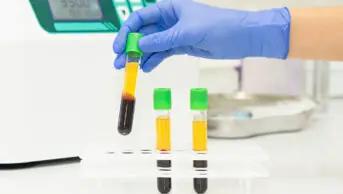
Danita Delimont / Alamy
Severe infections are a major cause of neonatal mortality. Recommended treatment involves seven to ten days of parenteral antibiotic therapy given in hospital but this is often not possible in low-income and middle-income countries.
Now, a major research venture has yielded two antibiotic regimens that can be administered in the outpatient setting. One is intramuscular gentamicin plus oral amoxicillin for seven days while the other is intramuscular procaine benzylpenicillin and gentamicin for two days then oral amoxicillin for five days.
In a randomised trial involving 2,490 infants with clinical signs of severe infection, the two new regimens had similar outcomes to that of standard treatment. “This finding could increase treatment options in resource-poor settings when referral care is not available or acceptable,” say the authors in The Lancet Global Health
[1]
(online, 1 April 2015).
References
[1] Baqui AH, Saha SK, Uddin Ahmed ASMN et al. Safety and efficacy of alternative antibiotic regimens compared with 7 day injectable procaine benzylpenicillin and gentamicin for outpatient treatment of neonates and young infants with clinical signs of severe infection when referral is not possible: a randomised, open-label, equivalence trial. The Lancet Global Health 2015. doi:10.1016/S2214-109X(14)70347-X.


